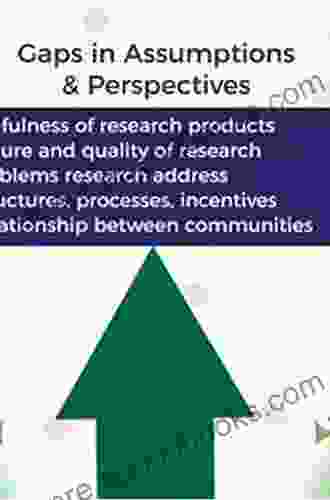Transforming Social Work Practice: Exploring Adult Interactive Style Intervention and Participatory Research Designs

Social work is a dynamic field that continuously evolves to meet the changing needs of society. In recent years, there has been a growing emphasis on empowering individuals and communities to take an active role in their own well-being. This shift has led to the development of innovative approaches to intervention and research, including Adult Interactive Style Intervention (AISI) and Participatory Research Designs (PRDs). This comprehensive guide delves into the theoretical underpinnings, key principles, and practical applications of AISI and PRDs, equipping social work practitioners with the knowledge and skills to effectively engage individuals and communities in transformative change.
AISI is a strengths-based intervention model that focuses on fostering meaningful engagement between practitioners and adult clients. It is rooted in the belief that all individuals have the potential for growth and change and that they can best be supported by a collaborative and empowering approach.
- Client-Centered: AISI places the client at the center of the intervention process. Practitioners prioritize understanding the client's experiences, strengths, and goals.
- Interactive: AISI emphasizes active participation and collaboration between the practitioner and client. Practitioners engage in open and respectful dialogue, inviting the client to share their perspectives and insights.
- Responsive: AISI is flexible and adaptable to the individual needs of each client. Practitioners tailor interventions to the client's unique circumstances and preferences.
- Collaborative: AISI recognizes that the client and practitioner are partners in the change process. Practitioners work alongside clients, empowering them to make informed decisions and take ownership of their outcomes.
- Strengths-Based: AISI focuses on identifying and building upon the client's strengths and resources. Practitioners believe that clients have the potential to overcome challenges and reach their full potential.
PRDs are research methodologies that actively involve stakeholders, including community members, in the research process. They prioritize collaboration, empowerment, and social justice. PRDs aim to create a more equitable and meaningful research process that is responsive to the needs of the community.
5 out of 5
| Language | : | English |
| File size | : | 3198 KB |
| Screen Reader | : | Supported |
| Print length | : | 230 pages |
- Community Engagement: PRDs actively involve community members in all stages of the research process, from planning to implementation and dissemination.
- Collaboration: PRDs foster a collaborative partnership between researchers and community members, recognizing the value of shared knowledge and expertise.
- Empowerment: PRDs strive to empower community members by providing opportunities for them to shape the research agenda, participate in data collection and analysis, and disseminate findings.
- Social Justice: PRDs are grounded in principles of social justice and aim to address issues of inequality, oppression, and marginalization.
- Reflexivity: PRDs encourage researchers to reflect on their own positionality and biases and to consider how these factors may influence the research process and outcomes.
AISI and PRDs offer a transformative approach to social work practice, with applications in various settings and with diverse populations.
- Mental Health: AISI has been effective in supporting individuals with mental health conditions to develop coping mechanisms, improve their relationships, and enhance their overall well-being.
- Substance Abuse: AISI can help individuals overcome substance abuse by facilitating self-awareness, building support systems, and addressing underlying issues.
- Trauma Recovery: AISI provides a safe and supportive environment for individuals to process traumatic experiences, build resilience, and heal from emotional wounds.
- Family Intervention: AISI can improve family dynamics by enhancing communication, promoting empathy, and fostering healthy relationships between family members.
- Community Health: PRDs can be used to identify health disparities, develop culturally sensitive interventions, and promote health equity in underserved communities.
- Education: PRDs can empower students and families to identify educational needs, improve school policies, and create more inclusive learning environments.
- Community Development: PRDs can facilitate community-led initiatives to address issues such as poverty, housing, and environmental justice.
- Social Policy: PRDs can provide evidence to inform social policies and advocate for changes that promote social justice and equity.
The integration of AISI and PRDs into social work practice offers numerous benefits:
- Increased Client Engagement: AISI and PRDs foster meaningful engagement between practitioners and clients or stakeholders, leading to greater investment in the change process.
- Enhanced Empowerment: By empowering clients or stakeholders to take an active role, AISI and PRDs promote self-efficacy and encourage a sense of ownership over outcomes.
- Improved Outcomes: Research has demonstrated that AISI and PRDs can lead to improved outcomes for individuals and communities, including reduced symptoms, increased well-being, and positive behavior change.
- Greater Social Justice: By centering the voices and experiences of marginalized groups, PRDs contribute to social justice and equity in research and practice.
- Innovation and Transformation: AISI and PRDs encourage practitioners to think creatively and adapt their interventions to meet the unique needs of diverse populations.
When implementing AISI and PRDs, social work practitioners must carefully consider ethical implications:
- Respect for Autonomy: Practitioners must respect the autonomy of clients or stakeholders and ensure that they are fully informed and consent to participation.
- Confidentiality: Practitioners must maintain confidentiality of sensitive information disclosed during interventions or research activities.
- Power Dynamics: Practitioners must be aware of power dynamics and strive to create a respectful and equitable environment for all participants.
- Avoiding Harm: Practitioners must prioritize the well-being of clients or stakeholders and avoid any actions that may cause harm or exploitation.
- Accountability: Practitioners must be accountable for the ethical conduct of their interventions or research and ensure that they adhere to professional standards.
Adult Interactive Style Intervention (AISI) and Participatory Research Designs (PRDs) represent transformative approaches to social work practice. By embracing a strengths-based, collaborative, and empowering approach, social work practitioners can effectively engage individuals and communities in meaningful change. AISI fosters meaningful engagement, while PRDs promote empowerment and social justice. Together, these approaches contribute to improved outcomes, innovation, and a more equitable and transformative social work practice. As the field of social work continues to evolve, AISI and PRDs will undoubtedly play an increasingly vital role in empowering individuals and communities to achieve their full potential.
5 out of 5
| Language | : | English |
| File size | : | 3198 KB |
| Screen Reader | : | Supported |
| Print length | : | 230 pages |
Do you want to contribute by writing guest posts on this blog?
Please contact us and send us a resume of previous articles that you have written.
 Book
Book Novel
Novel Page
Page Chapter
Chapter Text
Text Story
Story Genre
Genre Reader
Reader Library
Library Paperback
Paperback E-book
E-book Magazine
Magazine Newspaper
Newspaper Paragraph
Paragraph Sentence
Sentence Bookmark
Bookmark Shelf
Shelf Glossary
Glossary Bibliography
Bibliography Foreword
Foreword Preface
Preface Synopsis
Synopsis Annotation
Annotation Footnote
Footnote Manuscript
Manuscript Scroll
Scroll Codex
Codex Tome
Tome Bestseller
Bestseller Classics
Classics Library card
Library card Narrative
Narrative Biography
Biography Autobiography
Autobiography Memoir
Memoir Reference
Reference Encyclopedia
Encyclopedia Rachel Oates
Rachel Oates Liane Brouillette
Liane Brouillette Lawrence Edwards
Lawrence Edwards William F Felice
William F Felice William J Lipham
William J Lipham Robin Maria Delugan
Robin Maria Delugan Rajade M Berry James
Rajade M Berry James Rebecca Ross
Rebecca Ross Rob Willis
Rob Willis Ward Serrill
Ward Serrill Kimberley Lovato
Kimberley Lovato Linda Stout
Linda Stout Mark Winegardner
Mark Winegardner Kay Hooper
Kay Hooper Uwe Steinhoff
Uwe Steinhoff Susan M Walcott
Susan M Walcott Marques Lewis
Marques Lewis Lemn Sissay
Lemn Sissay Vesna Neskow
Vesna Neskow Naleighna Kai
Naleighna Kai
Light bulbAdvertise smarter! Our strategic ad space ensures maximum exposure. Reserve your spot today!

 Tyrone PowellSimple Graces: Charming Quilts and Companion Projects | Timeless Treasures...
Tyrone PowellSimple Graces: Charming Quilts and Companion Projects | Timeless Treasures... DeShawn PowellFollow ·7.8k
DeShawn PowellFollow ·7.8k Desmond FosterFollow ·16.6k
Desmond FosterFollow ·16.6k Manuel ButlerFollow ·19.5k
Manuel ButlerFollow ·19.5k Morris CarterFollow ·2.5k
Morris CarterFollow ·2.5k Cade SimmonsFollow ·6.6k
Cade SimmonsFollow ·6.6k Chad PriceFollow ·12.7k
Chad PriceFollow ·12.7k Benjamin StoneFollow ·3.4k
Benjamin StoneFollow ·3.4k Cortez ReedFollow ·19.2k
Cortez ReedFollow ·19.2k

 Finn Cox
Finn CoxCarmen Suite For Flute Quartet (G Alto Flute) ( Carmen...
Experience the Magic of...

 Andy Cole
Andy ColeUncover Hidden Truths: A Comprehensive Guide to Detecting...
: The Silent...

 Ken Simmons
Ken SimmonsUnleash Your Potential: Transform Frustration and...
Are you tired of feeling...

 Rick Nelson
Rick NelsonHard To Kill: A Gripping Thriller That Will Keep You on...
Tom Rollins is a...

 Ivan Turner
Ivan TurnerUnleash the Power of Your Breath: Discover Breath...
In the tapestry of life, where stress and...
5 out of 5
| Language | : | English |
| File size | : | 3198 KB |
| Screen Reader | : | Supported |
| Print length | : | 230 pages |











